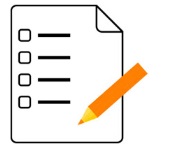Telephone skills
We now move from face-to-face encounters to phone calls. You will use the phone a lot as a pharmacist and there are differences between the two forms of communication.
Compared to face-to-face communication, telephone conversations are usually more formal and less personal, so some people enjoy them less. On the phone we are more task-centred, ask more questions, interrupt less, and we are generally briefer than when we meet someone face-to-face.
Conversing on the phone forces the participants to concentrate more on what is actually said, since body language is absent. It is not surprising therefore that the telephone is a major medium by which pharmacists respond to clinical problems. It is convenient and allows a lot of information to be imparted quickly.
On the telephone the voice and its message is centre stage. This can make some people feel uncomfortable about talking on the phone. People may feel less in control: afraid of saying the wrong thing, appearing nervous, or of receiving a question they cannot answer. The potentially ‘sterile’ nature of telephone conversation can be overcome to some extent by deliberately engaging in brief general conversation to put callers at ease, and by the (careful) use of personal references such as the caller’s first name. But clearly there is a time and place for everything. For example, some people will not appreciate you using their first name if you barely know them.
Phone tips
Always introduce yourself. Be professional.Prepare. If you know you will be discussing a clinical problem in advance, prepare your response fully before phoning your patient or colleague. Have relevant resources close at hand in case of further questions. If you are confronted by a clinical problem unexpectedly, don’t feel rushed into a response before you’re ready. Check the person’s deadline and phone them back.
Voice. Since the voice is the focal point of phone communication, use it! Adopt a fluent conversational style of speaking, emphasising key points by repeating them or changing the voice. Don’t fire out facts like a machine gun; don't waffle or drone on monotonously.
Structure. Follow a logical structure to the conversation, stating the most important points of the answer at the beginning, and repeating them at the end of the dialogue. In terms of questioning, every clinical tutorial on the Medicines Learning Portal has a list of suggested questions to ask in the Your practice sections. There are also some general questions to ask when problem solving.
Be clear. Give specific, concrete, instructions and simplify complex details to improve clarity. You can always offer to provide more information or written details if the enquirer wants it.
Listen. Don’t just focus on the questions you’re asked, listen to the other person’s responses. Do they sound uncertain, worried, unconvinced; are they concentrating on what you’re saying? Don’t be afraid to challenge:
- “You sound distracted, would it be better to phone back later?”
- “Did you want me to chat to your colleague about this as well?”
- “Is this not what you were expecting me to say?” etc.
Check understanding. The recipient’s understanding should be checked at regular intervals, and information should not be passed on more quickly than the he or she can assimilate it. Useful phrases include:
- “Are you with me there?”
- “Do you think this approach will work?”
- “Did you want me to go through that again?” etc.
Finally, try to remember to ask the person if they are satisfied once you feel you’ve answered their questions:
- “Is that ok?”
- “Do you think you’ll be able to sort this out now?”
- “Is there anything else you need?” etc.
You can ask your tutor or a colleague to evaluate your performance on the phone by listening in and completing this assessment document for you. This could constitute part of a peer review-type CPD exercise.
PAGE 7 OF 17. NEXT PAGE ›








